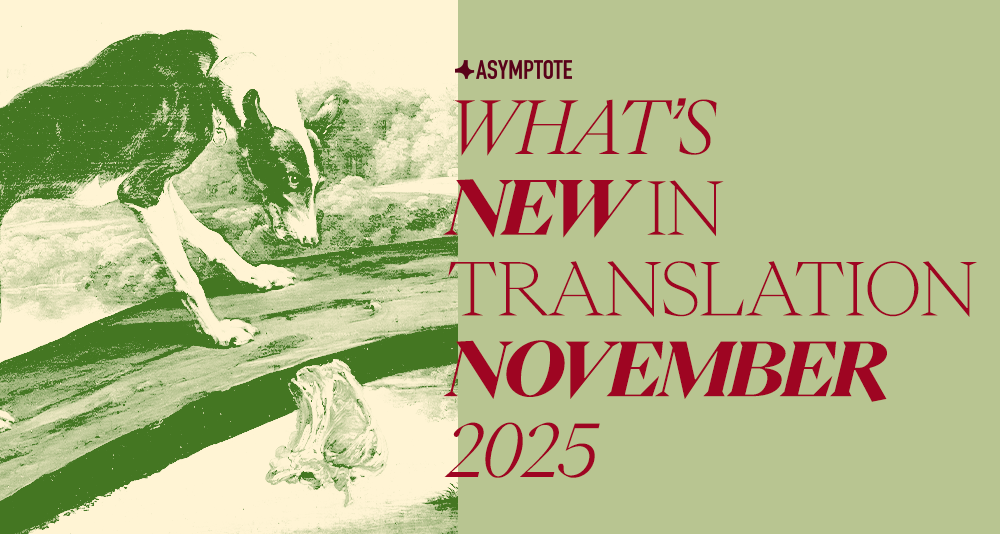This month, we’re bringing reviews of eleven different titles from eleven different regions, from a trilingual text of experimental fiction that veers between Vietnamese and English, a visceral and psychically frenetic portrait of a marriage gone wrong, a rich collection from a master Iranian poet that gestures towards his remarkable life, and the latest metafiction from a Spanish literary giant.

Dog Star by Nabarun Bhattacharya, translated from the Bengali by Subha Prasad Sanyal, Seagull Books, 2025
Review by Jason Gordy Walker
Something’s rotten in the city of Kolkata. A corrupt managerial class—within which mad scientists and war-mongers play a major role—has conspired with local authorities to capture, confine, and starve as many canines as possible. While the city’s “dead serf-servants and healthful, cellphone-carrying ever-connected mummies and balloons” stagger through their dystopia, the dogs have disappeared from the urban bustle, and no one cares. Animal rights groups have been eliminated, and in the way of Nazi death camps, the system targets even newborn pups. What’s a dog to do in these last dog days? “Bark! Bark!” replies the snappy refrain of Dog Star, the lyrical, subversive, and highly re-readable novella by Bengali writer and poet Nabarun Bhattacharya, delivered in a kinetic English by Subha Prasad Sanyal, who has doubtlessly advanced this innovative author’s reputation in world literature.
A self-proclaimed fable, Dog Star leads the reader through dark alleys where street dogs—“nerikuttas”—hide from “pincers,” form alliances, trade information about current dangers, and strategize escape plans, looking to the constellation “Lubdhok, aka Dogstar, aka Sirius aka Alpha Canis Majoris” for liberation. These survivors, along with their unlikely feline allies, are anthropomorphized in their emotions and dialogues, and their plight, although set in West Bengal, is familiar enough to seem representative of any place under political (dis)order. The Netanyahu regime’s genocide against Gaza comes to mind, for example, as do the active “detention centers” in the US: “They’ll yank and drag you by your neck with the pincers to the caged car. Then throw you in.” Bhattacharya does not avoid visceral descriptions of animal torture, but he balances its brutality with astute irony, giving the murderers absurd lines like: “We must pay heed that there aren’t ridiculous expenses.” READ MORE…


